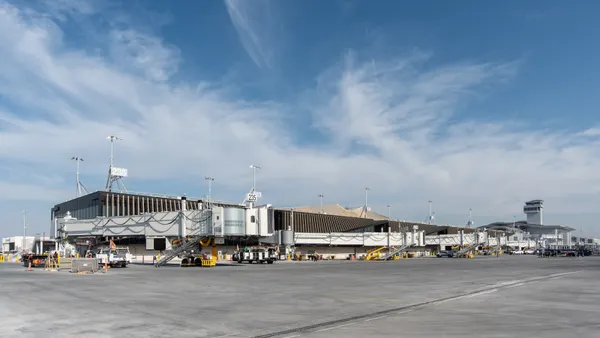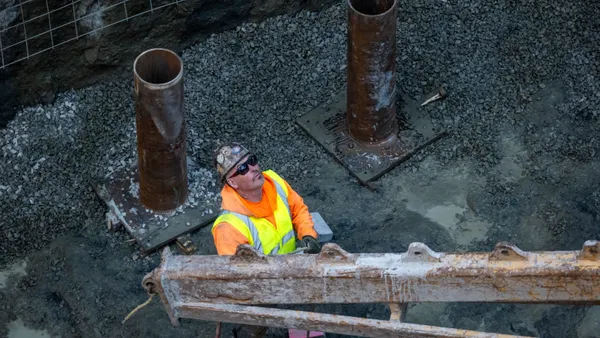Dive Brief:
- After much anticipation, the Federal Reserve announced Thursday afternoon it will leave interest rates unchanged as it continues to weigh the impact of global economic turmoil and the current pace of job gains on the recovering U.S. economy.
- However, the Fed also said it is still leaning towards increasing the near-zero rates later this year. It will meet again in October and December, and a rate increase could occur at one or both of those meetings. Federal Reserve Chair Janet Yellen said during a press conference after the announcement that "a great majority of participants" expect an increase later this year, according to CNBC's live coverage.
- The Fed wrote in its full statement: "To support continued progress toward maximum employment and price stability, the Committee today reaffirmed its view that the current [0-0.25%] target range for the federal funds rate remains appropriate."
Dive Insight:
When the Fed finally raises short-term interest for the first time in almost a decade, the increase won't automatically affect mortgage rates, as the Fed doesn't control those rates. But a decision to raise the short-term Federal Funds Rate will almost certainly influence the investors who determine mortgage rates. That has been the case throughout history, as home loan rates have increased after the Fed's short-term rate hike decisions.
Fed officials have repeatedly said they would not consider implementing a rate bump if they weren't confident the economy is strong enough to handle it.
Jonathan Smoke, chief economist with Realtor.com, wrote for CNBC that he predicts an interest rate increase of half a percentage point would result in an average 6% rise in new mortgage monthly payments and as much as a 7% rejection of mortgage applications.
Homebuilders are keeping a close eye on interest rates, as some fear an increase would deter potential buyers from making the move from renting to owning — thus reducing the number of potential buyers for their new properties.
But officials and economists have said the slow rise in rates will not result in crippling effects for the housing market or for builders counting on a continued recovery in the residential industry.
"The increase will be moderate, nothing alarming," Lawrence Yun, the National Association of Realtors’ chief economist, told Construction Dive last month. "The housing market overall should be able to absorb some increases in rates."
And in an August Reuters poll, economists agreed that a rate increase is unlikely to be significant enough to price buyers who are in good economic shape out of the housing market.
Compared with mortgage rates at their peak in October 1981, when they reached 18.45%, the cost of a home loan is currently near historic lows. In fact, interest rates never dipped below 5% since Freddie Mac started keeping track in 1971 until 2009. Except for a couple of months in 2010, interest rates have not topped 4.99% since then.










